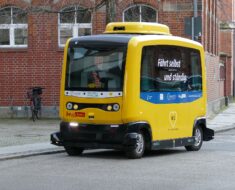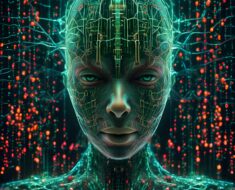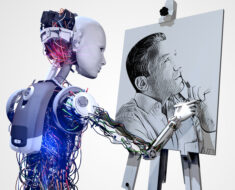The allure of artificial intelligence (AI) glimmers with unparalleled potential. From medical marvels to automated utopias, its promise whispers of a future reshaped by silicon synapses. Yet, lurking within the dazzling algorithms, shadows stir – whispers of dangers not from marauding robots, but from the insidious ways AI can warp the very fabric of our lives.
One specter that haunts is the specter of bias. Trained on mountains of data, AI inherits the prejudices woven into its tapestry. Imagine a hiring algorithm favoring one resume format over another, perpetuating existing inequalities. Or a facial recognition system misidentifying minorities with alarming frequency, eroding trust and fueling discrimination. Bias bleeds into decision-making, transforming AI from a tool into a perpetuator of injustice.
Another chilling prospect is the erosion of privacy. As AI devours every digital crumb we drop, it builds intricate profiles, predicting our desires before we even articulate them. This omniscient power, while offering personalized convenience, chills with its potential for manipulation. Targeted advertising becomes insidious whispers, nudging us towards predetermined choices. Political campaigns weaponize our deepest fears, tailoring propaganda to exploit individual vulnerabilities. In this panopticon, free will becomes an illusion, orchestrated by unseen algorithms.
Then there’s the specter of automation’s cold embrace. While liberating us from tedious tasks, it threatens to render many jobs obsolete. Truck drivers replaced by self-driving rigs, cashiers by checkout algorithms – the displaced masses swell an underclass, their skills no longer currency in the AI-driven marketplace. Discontent festers, social fabric frays, and the chasm between the haves and have-nots yawns wider, threatening societal stability.
But perhaps the most insidious danger lies in the gradual erosion of human agency. We outsource decisions to AI, whether it’s choosing news articles or recommending investments. Slowly, we cede control, relying on its inscrutable pronouncements. Our critical faculties atrophy, replaced by a blind faith in the machine. When the inevitable error occurs, who bears the responsibility? The opaque algorithms, forever beyond accountability, leaving us adrift in a sea of consequences.
These are not the dystopian nightmares of science fiction; they are the shadows creeping at the edges of our AI-infused present. To harness the power of AI without succumbing to its dangers, we must act with vigilance. We must demand transparency and accountability, ensuring AI serves humanity, not the other way around. We must prioritize human values in training data, combatting bias and empowering individuals to resist algorithmic manipulation. And most importantly, we must reclaim our agency, remembering that technology, however dazzling, remains a tool, not a master.
The future of AI glitters with both promise and peril. It’s time to step past the dazzling spectacle and confront the shadows lurking within. Only then can we ensure that AI becomes a force for good, not a harbinger of our own undoing.




